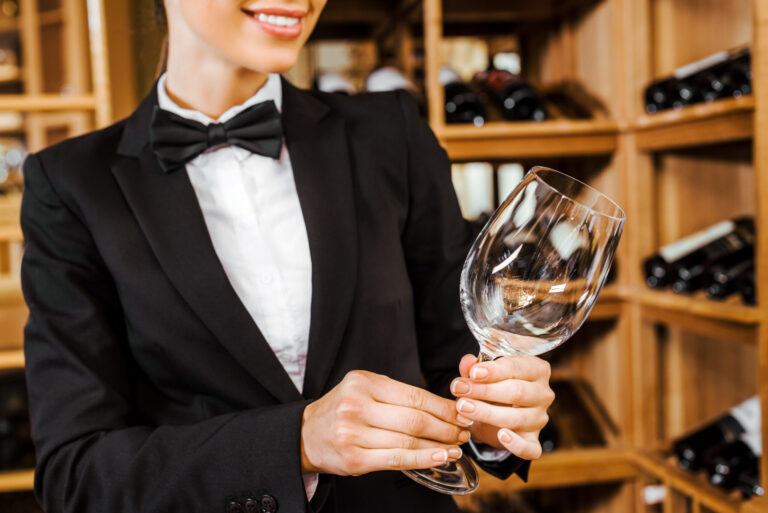How To Become a Sommelier
Embarking on a career as a sommelier can transform a passion for wine into a vocation that combines expertise in wine selection, pairings, and service. While the road to becoming a sommelier is demanding, it’s also immensely rewarding, offering the chance to continually learn about a product that’s as rich in history as it is in flavor. A sommelier’s knowledge is comprehensive, spanning from viticulture and vinification to mastering the subtleties of wine tasting and service. If you’ve ever wondered how you could turn your love for wine into a profession, this article will guide you through the essential steps and strategies that must be conquered. Keep reading to uncork the process.
Understanding the Role of a Sommelier and the Skills Required

In the realm of wine and dining, a sommelier holds a pivotal role, attending to wine service and curating a restaurant’s wine list. To excel, a sommelier needs deep knowledge of wine regions, grape varieties, and the intricacies of winemaking. They must also be intimately familiar with the restaurant’s menu to make impeccable pairing recommendations to enhance the customer’s dining experience.
Apart from theoretical knowledge, sommeliers require polished interpersonal skills. Daily interactions with restaurant staff and patrons demand strong communication, patience, and the capacity to educate without overwhelming or appearing pretentious. Adaptability is crucial, as sommeliers must tailor their approach to fit each customer’s level of wine knowledge and interest.
Attention to detail is another non-negotiable trait for successful sommeliers. They must carefully oversee wine storage and service conditions, maintaining the integrity of the wines they serve. Wine purchase and inventory management also fall under their purview, necessitating a fine balance between budget constraints and quality offerings.
Lastly, a sommelier’s palate is their most valuable asset. The ability to analyze and describe wines accurately, as well as detect and correct faults, is central to the role. This sensory skill set takes time to develop and is honed through continuous practice and exposure to a wide variety of wines.
Educational Pathways: Formal Training and Certification Programs
Aspiring sommeliers usually begin their journey with formal training, taking courses to build a foundational knowledge of wine. Renowned institutes across the globe offer various levels of sommelier training, from introductory classes to advanced programs. These courses are designed to equip students with critical wine education, including the science behind viticulture and the art of wine tasting.
While formal education isn’t strictly mandatory to become a sommelier, it significantly benefits those seeking to enter the field. Relevant certification from respected wine education programs can set candidates apart in a competitive industry.
Certification programs typically comprise multiple levels, each culminating in an examination that tests theoretical knowledge, tasting acumen, and service skills. Progressing through these levels confirms a candidate’s expertise and dedication to the craft, signaling their preparedness for the demands of the role.
It should be noted that certification is not the destination but a step in the journey. The most successful sommeliers commit to lifelong learning to stay abreast of the evolving wine world, from new winemaking techniques to emerging regions gaining acclaim on the international stage.
Gaining Practical Experience in Wine Service and Hospitality

Even the most extensive wine education cannot replace the value of hands-on experience. Prospective sommeliers should seek opportunities to work in settings where wine tasting and service are integral to operations. This can include restaurants, wineries, wine bars, or even hospitality events where wine plays a central role.
During these practical stints, individuals can refine their service techniques, learn about the logistics of managing a wine inventory, and witness the nuances of customer interactions. Moreover, real-world experience solidifies theoretical knowledge, allowing individuals to see wine and food pairings in action and understand customer preferences.
These experiences often serve as a reality check, distinguishing those truly suited for the demands of the profession from those whose passion may not endure the hectic pace and challenges of the industry. They’re a proving ground for service skills and a chance to test one’s commitment to the sommelier path.
Overall, becoming a sommelier is a confluence of education, experience, networking, and unyielding commitment to the art of wine. While the journey is strenuous, the reward is a career steeped in the richness of global cultures and the exquisite nuances of the world’s finest wines.





























